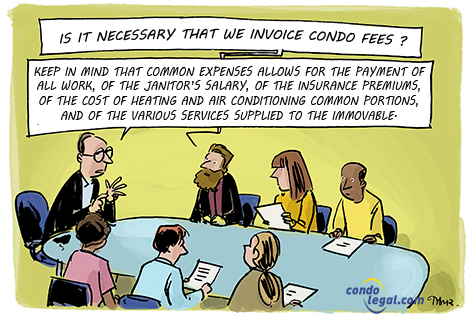 The accounting of the co-ownership is managed by the members of the board of directors or the manager designated by the latter. It is necessary for them to understand the rules of accounting in order to ensure the effective management of the syndicate of co-owners on a daily basis and measure its result in a reliable way. However, not all directors and co-owners are accountants by trade. It is therefore important that they understand the essentials concerning the accounting of their co-ownership. In practice, several accounting methods can be envisaged: each obeys a specific principle and often pursues a very particular purpose. There are two types of accounting: Cash basis of accounting and Accrual basis of accounting.
The accounting of the co-ownership is managed by the members of the board of directors or the manager designated by the latter. It is necessary for them to understand the rules of accounting in order to ensure the effective management of the syndicate of co-owners on a daily basis and measure its result in a reliable way. However, not all directors and co-owners are accountants by trade. It is therefore important that they understand the essentials concerning the accounting of their co-ownership. In practice, several accounting methods can be envisaged: each obeys a specific principle and often pursues a very particular purpose. There are two types of accounting: Cash basis of accounting and Accrual basis of accounting.
CASH BASIS OF ACCOUNTING
A cash basis of accounting consist of recording the transactions of the syndicate when the receipt or disbursement related to the transaction occurs. It is a faithful reproduction of the bank statement, broken down into various asset, liabilities, income or expenses accounts. Moreover, instead of talking about income and expenses, one should speak of receipts and disbursements. This basis of accounting has many limitations.
A practical example
For example, let’s take a co-owner whom for the first time this year in 2023 leave for Florida and come back in six months. Before leaving in December 2023, he remits a check covering the next six months of condo fees. The year-end of the syndicate is December 31. In December, when the check is received, the encashment is recorded as income. The revenue for this year 2023 will then include 18 months of condo fees, be the usual 12 months and an additional 6 months. Next year, when he return from vacation, he will begin to pay its monthly condo fees, so there will be only six months of revenue in 2024 (July to December).
Conversely, if an owner is financially unable to pay his condo fees during the year 2023, no income will be recorded. In January 2024, he wins the lottery and pays the syndicate its 12 month of late condos fees. In 2024, there will be 24 months of income recorded.
The problem also applies to expenses. If in December 2022, the syndicate receives the invoice for the 2022-2023 snow removal and pay it immediately, the expense will be recorded 2022. In December 2023, when the invoice for the winter 2023-2024 is received, the payment is delayed until January 2024 and hence, the expense is only recorded in 2024. For the year 2023, there will then be no snow removal expense.
With the cash basis of accounting, the syndicate’s accounting books will then be very disparate from one year to another and the budget monitoring will be very difficult to perform.
These different issues are solved with the accrual basis of accounting. However, the bookkeeping is more complex.
ACCRUAL BASIS OF ACCOUNTING
In an accrual basis of accounting, income is recognized when earned and expenses when incurred. The co-owner who leaves for Florida and pays 6 months ahead of its condo fees will have no impact on the syndicate's income. The six months of its condo fees that is paid before leaving will be considered as a liability for the syndicate, be a deferred revenue which will be recognized in income only when it is actually earned, as time passes. For the other co-owner who pays its condo fees late because of its financial problems, the income will still be recorded monthly in 2016. There will then be an account receivable from the owner on the balance sheet. This way, the accounting is much clearer and budget monitoring is greatly facilitated.
As for expenses, they are recognized when incurred, even if they have not been paid and even if the invoice is not yet received from the supplier. For example, the electricity bill of December 2023 is received at the end of January 2024. We must then recognize an account payable in the 2023 financial statement for the electricity consumed in December.
CONCLUSION
If the syndicate has only a few transactions, co-owners pay without delay and expenses are paid religiously, it is possible to use a cash basis of accounting. However, if there are accounts receivable or deferred revenues, accounts payable or prepaid expenses, it is better to use the accrual basis. The budget monitoring will be improved as well as the comparison of results from one period to another.
Good data entry ...
Aline Desormeaux, CPA auditrice, CA
Désormeaux Patenaude inc
1312 Sherbrooke est
Montréal, Québec H2L 1M2
Téléphone : 514 522-2232 EXT. 207
[email protected]
Chronic express the personal opinions of the author and in no way engage the responsibility of the site editor, CondoLegal.com Inc. The content and opinions expressed in a column are those of the author.
